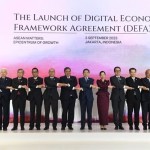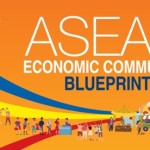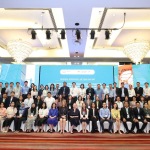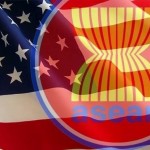Total number of posts 463.
Amid rising global protectionism, the Regional Comprehensive Economic Partnership (RCEP) has emerged as a strategic cooperation framework that helps sustain the flow of free trade and stabilize regional supply chains. With participation from 15 countries, including ASEAN Member States, China, Japan, South Korea, Australia, and New Zealand—RCEP not only fosters intra-regional integration but also reduces reliance on traditional markets. Its significant potential and strong political commitment have further elevated RCEP’s role as a key pillar supporting open trade, resilient supply chains, and deeper regional economic connectivity.
As the global economy faces mounting pressure from a new wave of protectionism, the Regional Comprehensive Economic Partnership (RCEP) has increasingly gained attention as a vital framework supporting trade recovery and growth. With 15 participating economies including ASEAN, China, Japan, South Korea, Australia, and New Zealand, RCEP is currently the world’s largest free trade agreement, accounting for around 30% of global GDP and encompassing 2.3 billion people.
Since early 2025, U.S. President Donald Trump has revived aggressive protectionist trade policies, introducing new rounds of retaliatory tariffs, especially targeting imports from China. These policies have disrupted global supply chains and put heavy pressure on export-oriented economies, particularly in the Asia-Pacific region.
In this context, RCEP, which is built on harmonized trade rules, especially rules of origin, has become increasingly valued for giving regional businesses greater flexibility in sourcing and market access. It is increasingly seen as a "trade shield" for countries in the region, helping sustain free trade flows and reinforcing confidence in multilateral cooperation.
The U.S. withdrawal from the CPTPP and its unilateral tariff measures have pushed Asia-Pacific economies to seek alternative, more sustainable and stable cooperation mechanisms. RCEP, encompassing all 10 ASEAN members along with China, Japan, South Korea, Australia, and New Zealand, has created a vast trading bloc that not only facilitates intra-regional trade but also supports supply chain restructuring to reduce dependence on external markets like the U.S.
Notably, for the first time, the three major Northeast Asian economies (China, Japan, and South Korea) are participating together in a common FTA, alongside the dynamic ASEAN region and developed partners such as Australia and New Zealand. This network opens new opportunities for trade, investment, and supply chain transformation. Recent high-level economic dialogues have emphasized the urgent need to accelerate RCEP implementation as a proactive response to external risks, especially those stemming from rising protectionism. This demonstrates that RCEP cooperation is no longer supplementary, and it has become a strategic, flexible, and long-term policy for the region.
In addition, RCEP has drawn increasing interest from other economies seeking accession. To date, four economies including Hong Kong (China), Sri Lanka, Chile, and Bangladesh have formally submitted applications to join RCEP on January 21, 2022; June 28, 2023; June 14, 2024; and January 21, 2025, respectively. Member states are currently finalizing a general accession procedure before engaging in discussions on each individual application.
Despite its vast potential, the implementation and utilization of RCEP commitments remain uneven across members. Differences in institutional capacity, development levels, and enterprise awareness pose considerable challenges. Nevertheless, with strong political will and active efforts from member states, RCEP continues to grow in importance as a driving force for global free trade amid protectionist headwinds.
As the world grapples with an increasingly protectionist trade environment, RCEP stands out as a pillar of open trade, supply chain resilience, and regional economic integration. Effective implementation of RCEP will not only benefit member states but also contribute to shaping a more open, cooperative, and sustainable global trade order.
Source: Compiled by the Multilateral Trade Policy Department, Ministry of Industry and Trade of Viet Nam














